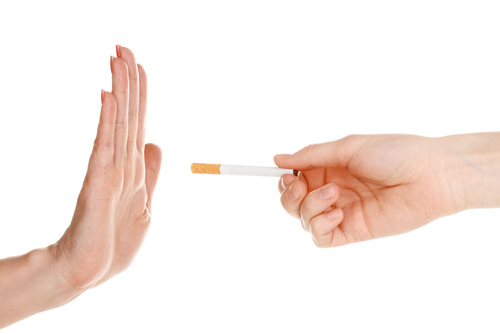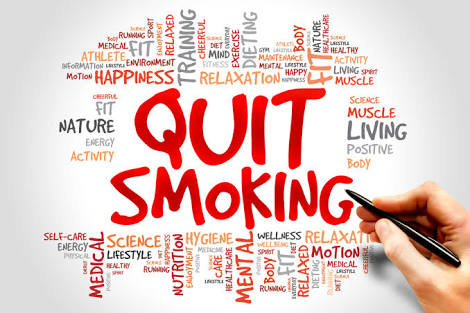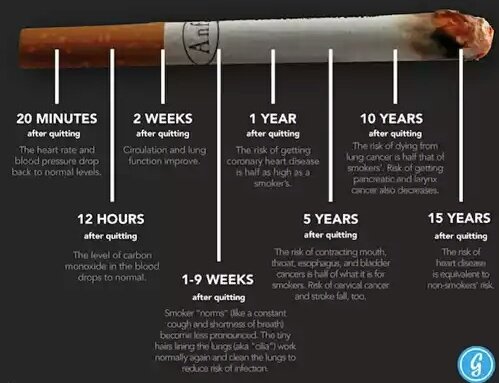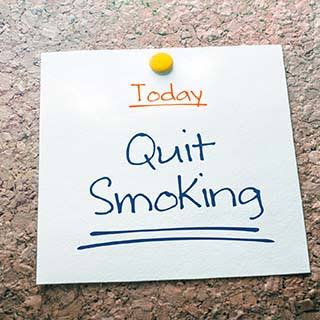Everyday Health Lung and Respiratory Stop Smoking
Everyday Health Lung & Respiratory Stop Smoking
How to Quit Smoking Without Weight Gain
If fear of weight gain has kept you from quitting smoking, it may help you to know that there are ways to avoid putting on pounds.

Quitting smoking is already challenging, but many smokers are also concerned that they'll gain weight if they kick the habit. But according to the National Institutes of Health, not everyone gains weight when they stop smoking. In fact, among people who do quit, the average weight gain is 4 to 10 pounds. Only a minority of those who quit — about 10 percent — gain 30 pounds or more.
What Causes the Weight Gain When You Quit Smoking?
Heavy smokers are likely to gain the most weight when they quit smoking, generally within the first six months. As people adjust to life without cigarettes, they often lose some of the weight they gained.
Cigarettes are believed to increase the body's metabolic rate, making you burn calories faster. If you feel your heart is beating faster after you have a cigarette, that's a sign that your metabolic rate has increased.
.jpg)
"Your calorie needs may actually decrease when you stop smoking, so there's an added degree of difficulty in having to cut back on what you eat.
Other factors at work include:
Increased hunger. Many people feel hungrier after they quit smoking, and an increased appetite may cause you to eat more than usual. Smell and taste sensations may be stronger once you quit, and this, too, may increase your appetite. Fortunately, increased appetite is usually temporary and goes away after a few weeks.
Emotional factors. These have a role in weight gain, too. People often smoke when they’re agitated, bored, under stress, or as a reward. It's very easy to substitute food for cigarettes in these situations. Of course, that means an increase in calories consumed. Axen describes this as incorrectly identifying other feelings as hunger. She points out that even people who are not smokers overeat for reasons that have nothing to do with hunger.
Habit. Smokers are used to having something in their hand and mouth. Eating or snacking fills that need.
Substitutes for Cigarettes
.jpg)
Instead of eating, some people use a toothpick or straw to replace a cigarette. You may need to change some of your daily rituals, too. If you always smoked a cigarette while having a cup of coffee, for example, try switching to tea for a while.
When it comes to burning more calories, exercise is a far healthier way to increase your metabolism than nicotine. Exercise can also decrease appetite, help you cope with stress, improve your mood, and help you avoid a large weight gain. Get in the habit of being more active and moving around more, says Axen.
What Should You Snack On When You Quit Smoking?

The volume of food in our gastrointestinal tract provides one of the strongest signals that we've eaten enough. So aim for low energy-density snacks with a lot of volume per calorie. Examples are foods with a high water or fiber content, like tomatoes and many raw vegetables, such as carrot or celery sticks. Berries, apples, peaches, and apricots are also good.
For between-meal cravings, suck on sugar-free hard candy or chew sugar-free gum. The more effort you have to put into chewing, the less you're likely to eat.
The best beverages for new non-smokers are water or seltzer. If you drink juice, make it a spritzer or use a lot of ice. Otherwise, juices are too high in calories.
Stay away from calorie-dense snacks, like fast foods and processed foods, as well as some that are actually healthy, but just have too many calories, like dried fruits, seeds, and nuts. If you turn to snacks that are high in fat or sugar or drink more alcoholic beverages, you're more likely to gain weight.
.jpg)